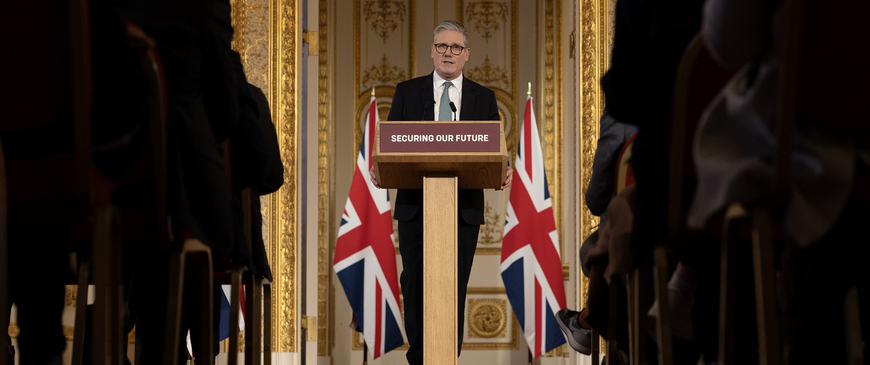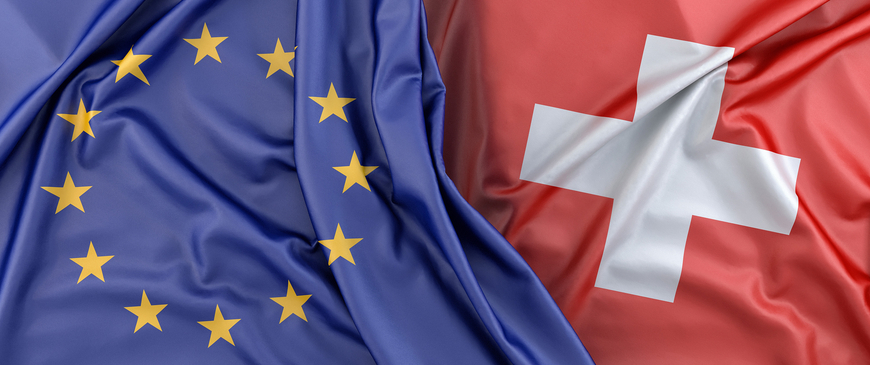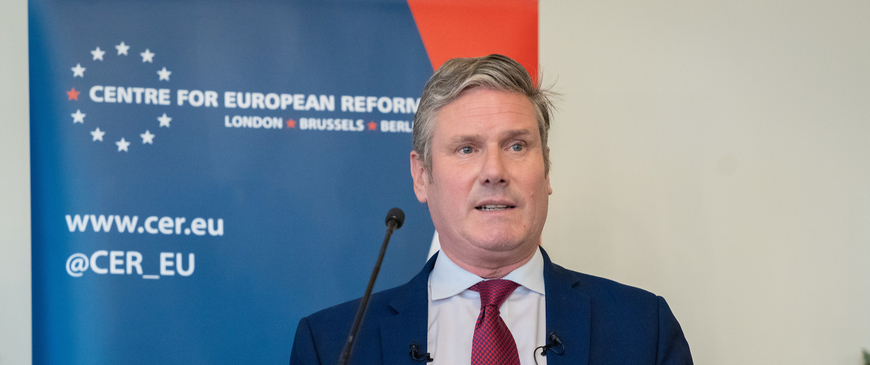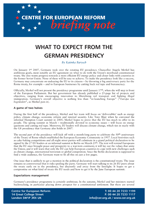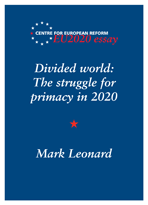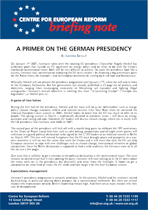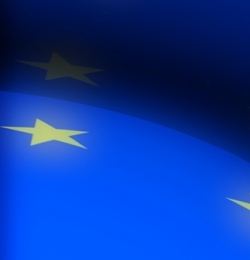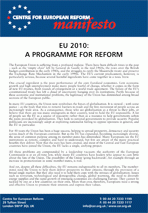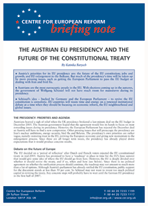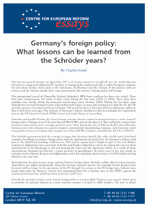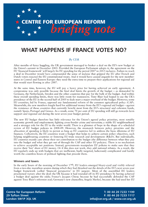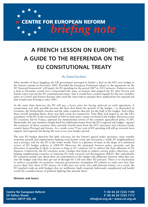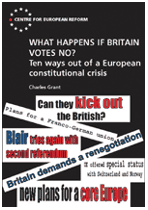Britain & EU member-states
The wrong benchmark for Eastern Europe
25 January 2007
In November last year, Anders Aslund, a long-time observer of transition economies, rang the alarm bells over Eastern Europe. In an FT article he talked about “Central Europe’s political malaise” and warned that budget profligacy and reform fatigue would keep the new members from catching up with the West.
The Tories and human trafficking: Don’t play politics
09 January 2007
The British Conservative party kicked off the New Year saying they wanted to sign Britain up to a 2005 European convention that grants rights to the victims of human trafficking. Odd that the Conservatives should suddenly develop such a concern for humanity: only a few months before they wanted to scrap UK legislation giving effect to a related European convention on human rights for all British citizens.
What to expect from the German presidency
03 January 2007
On 1 January 2007, Germany took over the rotating EU presidency. Chancellor Angela Merkel has ambitious goals, most notably an EU agreement on what to do with the Union’s moribund constitutional treaty.
Divided world: The struggle for primacy in 2020
01 January 2007
The world in 2020 will not see a new world order, but a competition between four ideas of how the world should be run: an American world striving for a balance of power that favours democracy; a 'Eurosphere' whose support for democracy is coupled with a belief in international institutions;...
Has Germany been Finlandised (and has Britain)?
21 December 2006
During the Cold War, Finland was a prosperous, liberal democracy. But its leaders felt unable to criticise the Soviet Union, particularly on questions of foreign policy.
A primer on the German presidency
21 December 2006
On January 1st 2007, Germany takes over the rotating EU presidency. Chancellor Angela Merkel has ambitious goals that include an EU agreement on energy policy and on what to do with the Union's moribund constitutional treaty. Both will be very difficult to achieve.
Segolene's crushing victory: Good or bad news?
26 November 2006
Segolene Royal’s victory in the socialist party’s (PS) presidential primary last week was widely expected. The scale of her triumph, however, came as a surprise.
The bulletin at fifty
02 October 2006
The CER opened its office in January 1998. Soon afterwards we established the bulletin as a forum for debate on European reform – both for our staff, and for external contributors.
Britain and France must pool parts of their defence
01 August 2006
In European Union defence, Britain and France spend the most money (45 per cent of the total), maintain the largest and most effective expeditionary forces, run the biggest defence industries and manage the most important research facilities.
EU 2010: A programme for reform
03 February 2006
The European Union is suffering from a profound malaise. There have been difficult times in the past – such as the 'empty chair' left by General de Gaulle in the mid-1960s, the rows over the British budget contribution in the early 1980s, and the struggles to ratify the Maastricht treaty...
The Austrian EU presidency and the future of the constitutional treaty
24 January 2006
Austrians heaved a sigh of relief when the UK presidency brokered a last-minute deal on the EU budget in December 2005. The Austrian government hoped that the agreement would free its hands to focus on more rewarding issues during its presidency.
Germany's foreign policy: What lessons can be learned from the Schröder years?
02 September 2005
The German general election on September 18th 2005 is of massive interest to people all over the world. Because Germany is a large and influential EU member, its foreign policy matters not only to other European countries, but also those further afield, such as the Americans, the Russians and the Chinese.
Liberal versus social Europe
01 August 2005
Europe is in the grip of a fundamental debate about its economic future, or at least that is what some politicians and many journalists would have us believe.
A bad European dream
01 August 2005
On a grey Thursday morning in June 2006, Lee Barker, a 29-year-old Midlands businessman, was packing his bags to go to Germany.
Europe’s social dilemma
01 August 2005
Of all the items on the agenda of the British EU presidency, perhaps the least expected is a debate on ‘social Europe’. Tired of being crudely caricatured as ‘neoliberal’, Tony Blair has invited EU leaders to an informal summit in October to discuss the future of Europe’s social model.
Issue 43 - 2005
29 July 2005
- Liberal versus social Europe, Katinka Barysch
- A bad European dream, Daniel Keohane
- Europe’s social dilemma, Alasdair Murray
Issue 42 - 2005
27 May 2005
- Europe beyond the referendums, Charles Grant
- Unshackling services is the key to Europe's economic future, Digby Jones
- When the dust settles, Alasdair Murray
What happens if France votes No?
02 May 2005
In just over two weeks France will hold a referendum on the EU constitutional treaty. The outcome of the 29 May 2005 referendum remains on a knife-edge with the latest polls suggesting the country is split down the middle.
A French lesson for Europe? A guide to the referenda on the EU constitutional treaty
01 April 2005
On 29 May 2005 France will hold the second of ten national referenda on the EU constitutional treaty. The 25 EU governments have until November 2006 to ratify the treaty.
What happens if Britain votes No?: Ten ways out of a constitutional crisis
01 February 2005
If the rest of the EU adopts the constitutional treaty but the British vote against it, the Union faces crisis and instability. Charles Grant looks at what may happen next. Would there be a second referendum, or an attempt to renegotiate the treaties?


